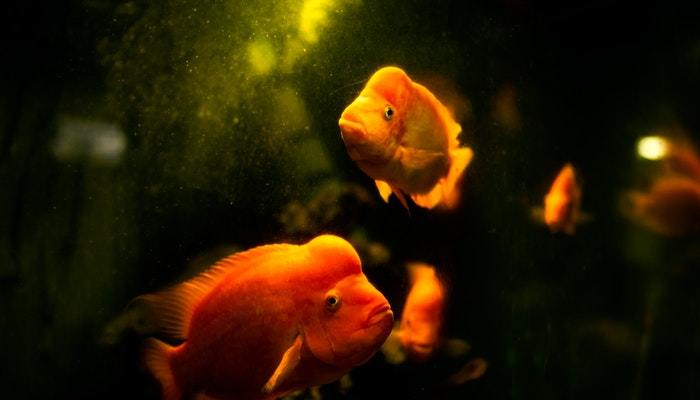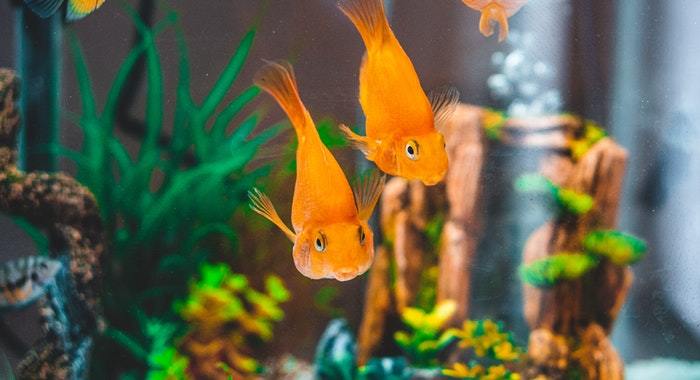The allure of having a saltwater fish tank and turning it into a hobby is often based on the fact that saltwater fishes are beautiful and intriguing. However, most people soon realize that having a saltwater fish tank is not all fun. And like most hobbies that are worthwhile, you have to put in the work.
Unlike freshwater fish tanks, saltwater fish require stricter water quality parameters particularly in the aspect of salinity, PH, and temperature. Taking care of these necessities and sustaining the balance is where having a regular maintenance regimen comes in.
The secret to a successful marine tank maintenance regimen is planning ahead. This includes earlier steps like the type of saltwater fish you should get and the process of setting up your fish tank. After a successful setup, you may now follow some of the maintenance protocols that’ll be discussed here to keep your new ecosystem healthy.
If you are ready to learn more about the Saltwater Fish Tank Maintenance Tips & saltwater fish compatibility chart as it is getting established, read on!
Maintaining Saltwater for Marine Tanks

Daily Checking and Maintenance of Salinity
Heated saltwater tanks, even with a sealed lid, will lose water due to evaporation. This is bound to increase the level of salinity. This is because evaporated water is 100 percent pure and leaves behind more salt concentrations in the tank. You don’t want that.
Therefore, you regularly have to top it off with heated freshwater to keep the salinity stable. You can get a hydrometer or a refractometer to measure and ensure your salinity stays in the correct range.
Weekly Replacement of Water
You need to keep a strict water-changing schedule for the first few months of setting up your marine aquarium. It takes a while, after you first set up, for your saltwater tank to cycle and water quality levels to balance. This balance is between your biological filtration, the new fish you just added, and any invertebrates such as corals or shrimp.
After your aquarium is fully cycled, you need to regularly change the water to prevent any hiccups over the first 6-8 months. This is even more important if you plan to keep adding live elements such as live rock and fish.
While changing the water, you should use a sand or gravel siphon to reach the deeper layers of your substrate. This will ensure that the bacteria living in the substrate aren’t harmed. Lookout for piles of debris that hide around or beneath your live rock and vacuum. But, be careful not to bother the bottom dwellers.
Also, you can create a new pile of substrate for any burrowing fish, but be careful not to squish or suck them up during gravel vacuuming and cleaning.
Maintaining Weekly Filtration
Ensure regularly inspect your filter media, making sure that it allows free flow of water and doesn’t get clogged from lots of debris.
So unless your filter media has gone bad, never be in a hurry to replace them. Also, never rinse with fresh water, but rinse with the wastewater you collect from your water change. You do that to preserve the population of beneficial bacteria contained in your filtered media. Beneficial bacteria help coral develop tolerance to their immediate environment. So never mind if it smells or looks dirty, that’s the point!
Collecting or Making Saltwater
If you’ve made having a marine aquarium your hobby, then you need to collect or make saltwater. If you plan on collecting water from a beach, make sure it’s permitted by your local laws and has been appropriately treated. Also, wild water should be sterilized for at least with a UV sterilizer to eliminate dangerous pathogens.
If don’t have access to seawater, you might have to make it yourself. You could make use of well or tap water but making use of RO (Reverse Osmosis) filtered water is the best for mixing a salt solution.
There are different salt mixes, some specific for fish-only saltwater and others for fish and corals. That’s why it’s advisable to start with a fish-only tank because coral requires a specialized aquarium, water flow light, and saltwater requirements.
Check Temperature of Water Daily
You need to inspect the temperature of your aquarium daily. Tropical saltwater fish do not fare well in cold temperatures. They may get sick and even die. Therefore, it’s important to check daily to see if your heaters are functioning well. You should incest in submerged thermometers rather than external thermometers.
Scrubbing Algae Weekly
Since you’re going to be dealing with fish and water, it makes sense to expect to deal with algae as well. And If you have corals, your algae problems increases because they also thrive under strong light.
High levels of nitrate and phosphate boost also the growth of algae, so check your water quality often. To keep algae population under check, use an appropriate scrubber to scrub your glass or acrylic aquarium walls regularly. Adding species like cleaner shrimp can also help you keep your walls clean and clear.
Regular Fish Maintenance
Daily Fish Feeding
Before you buy your fish, make sure you’ve done extensive research on which diets will be best for them. Some marine fish are choosy eaters and if you buy the wrong feed you might lose your investment.
You should feed your fish with the broadcast method. This is when you scatter the feed across large surface area water. Focus on areas with high water flow such as filter outflows or power heads. This helps ensure that everyone gets their fair share and reduces potential competition, especially among-st aggressive fish species.
Checking In On Fish And Invertebrates Daily
You should carefully watch your aquarium daily. Feeding time is always a good time to observe and evaluate your fish’s behavior or appearance.
Not just fish, you also check in on your coral and invertebrates daily. If any of your Aquatic animals are behaving strangely you should contact your local aquatic veterinarian for more assistance.
Marine Aquarium

Apart from the beauty of having a marine aquarium, watching your fish swimming can be a form of meditation and can have therapeutic effects. Therefore, it is important to make sure your fish, invertebrates, corals, and the aquarium itself are always in optimum condition.
If you follow some of the tips discussed above, you’d have all the information required to develop an effective saltwater fish tank maintenance culture.